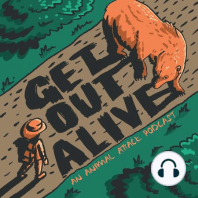49 min listen
Ep. 56: Dingoes on Trial
ratings:
Length:
70 minutes
Released:
Jun 28, 2023
Format:
Podcast episode
Description
Content Warning: Harm and death to children/infantsIn the finale of our two part series on Azaria Chamberlain's disappearance, we cover all of the evidence for the case, all of the resulting inquests, Azaria's official cause of death, and more. Sources mentioned in episode:The diet of the dingo (Canis lupus dingo) in north-eastern Australia with comments on its conservation implications, 2011, by Brook and KuttCognitive Bias and Blindness: A Global Survey of Forensic Science Examiners, 2017, by Kukucka et al.Through My Eyes and A Dingo's Got My Baby: Words That Divided A Nation were two books authored by Lindy Chamberlain-CreightonOther podcast recommendations if you liked the content in this episode: True Crime Obsessed Let the Women: Lorri Davis on the West Memphis ThreeSupport the showSupport the show by shopping at www.getoutalivepodcast.com/shopFollow us on Instagram, Facebook, Tiktok, check out our website GetOutAlivePodcast.com and join us on Patreon!You can find Ashley @TheAngryOlogist on Twitter
Released:
Jun 28, 2023
Format:
Podcast episode
Titles in the series (79)
Ep. 8: Stuck in a Hippo's mouth (feat. Camille Fritsch) by Get Out Alive: An Animal Attack Podcast
